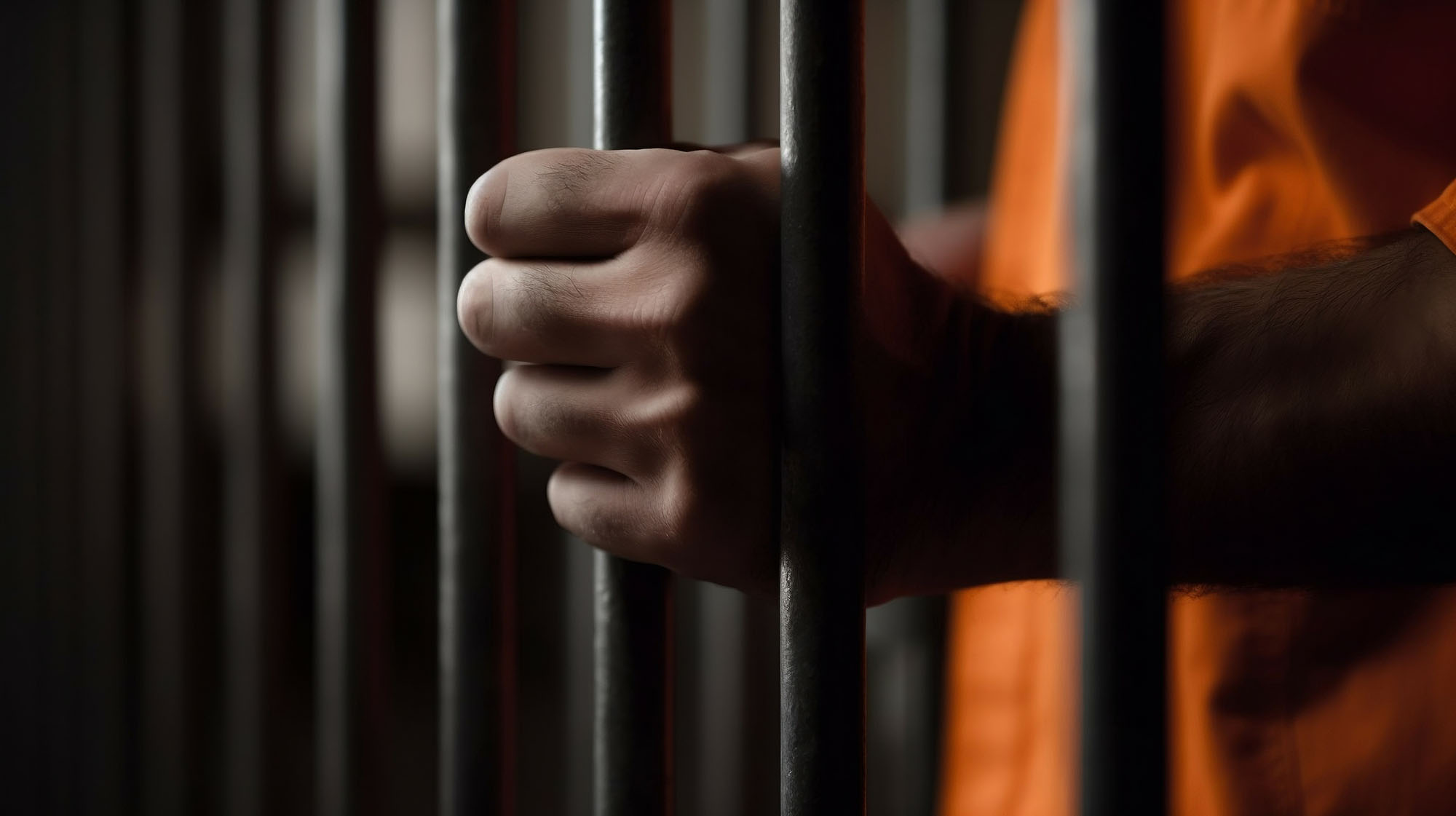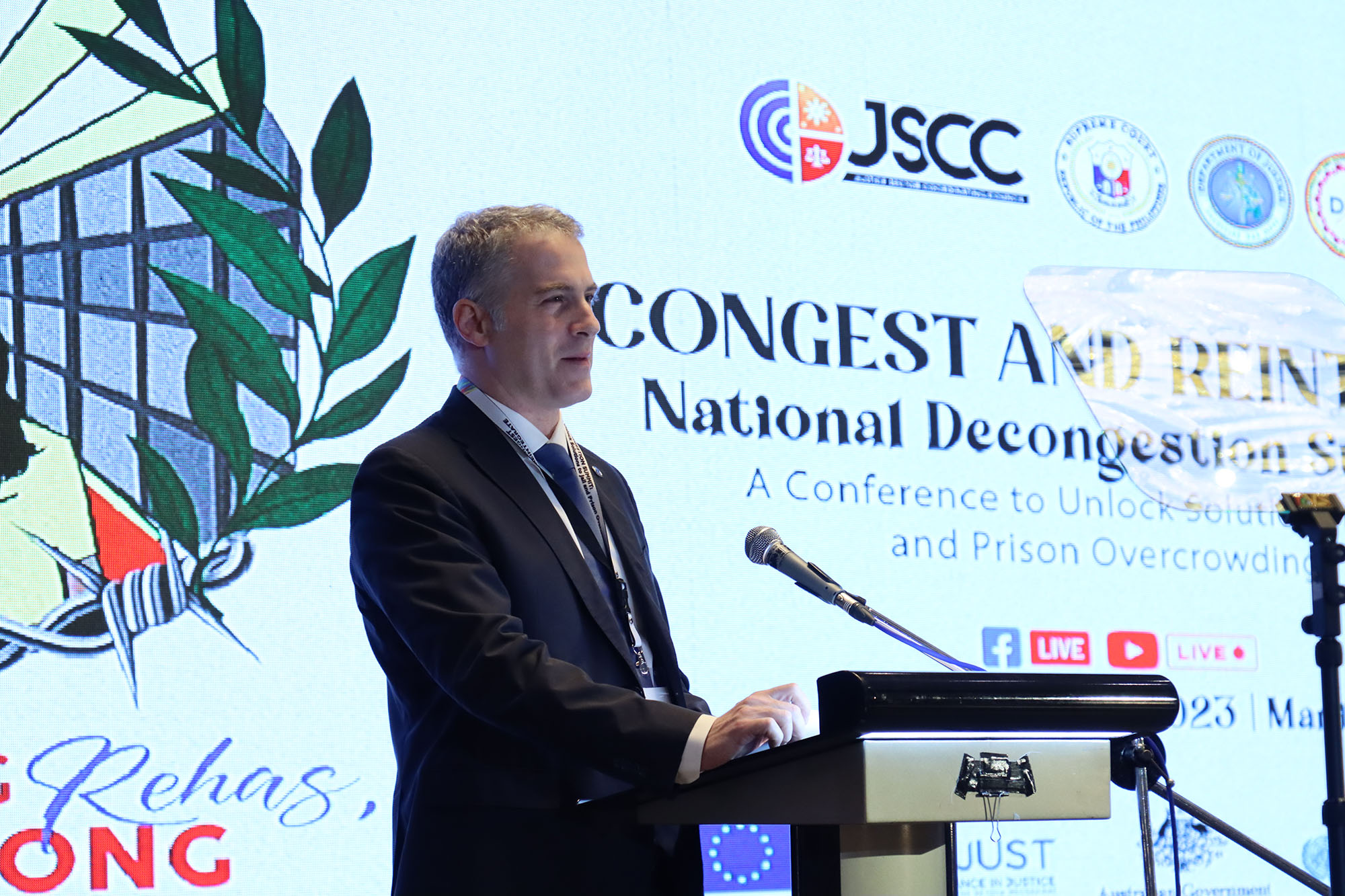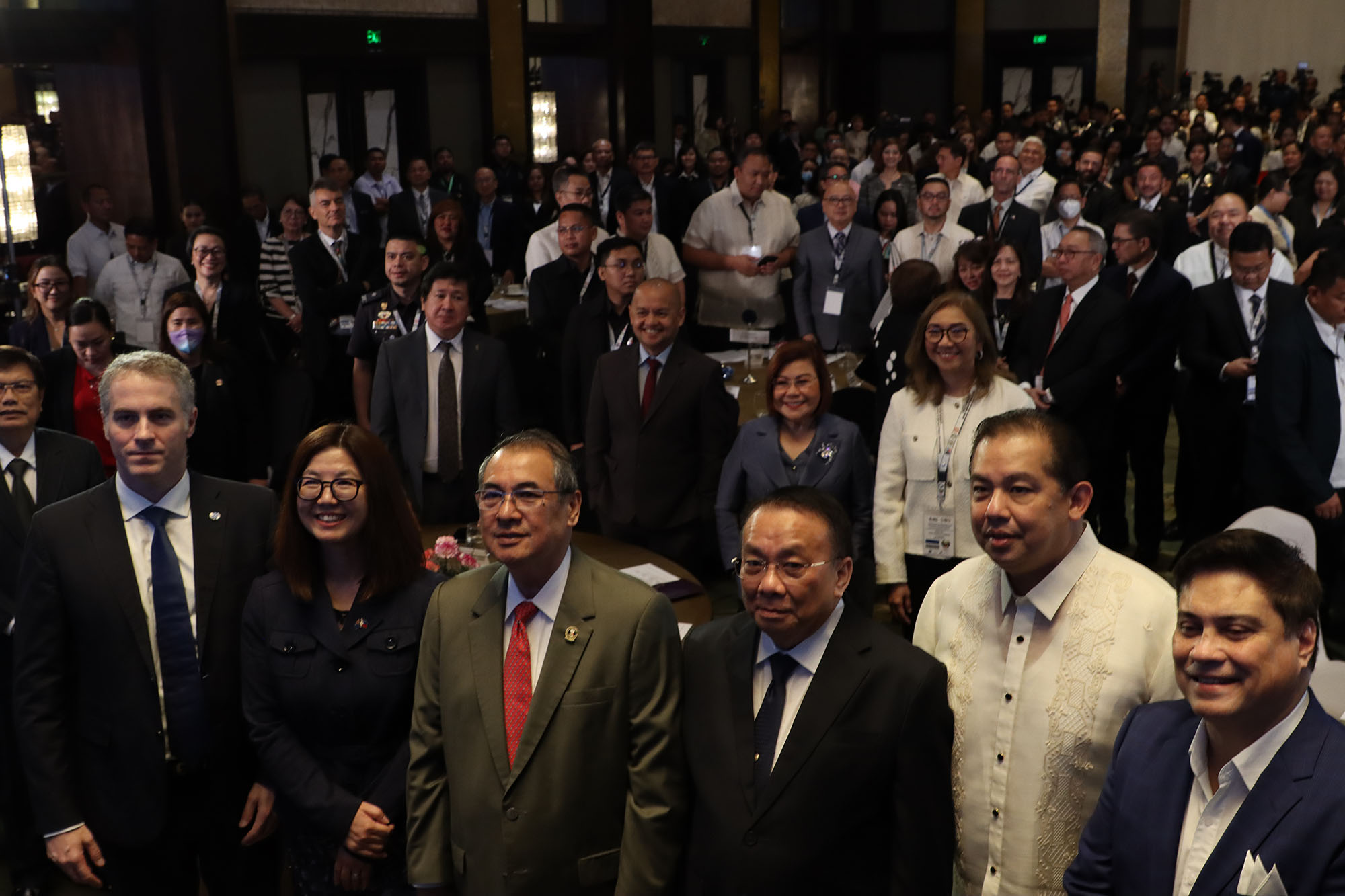
Manila (Philippines), 7 December 2023 - Ranking third in the world for jail and prison overcrowding, the Philippines is set to decongest its detention facilities. This is what authorities declared yesterday during the first National Decongestion Summit held in Manila, with the support of the United Nations Office on Drugs and Crime (UNODC).
The Philippines has the eleventh highest prison population in the world. From 2015 to 2021, persons deprived of liberty in the corrections system ballooned from 94,691 to 165,528 — an almost 75% rise. Set to address the issue, the country’s Justice Sector Coordinating Council (JSCC) organized the National Decongestion Summit, the first of its kind to address systemic issues connected with correctional overcrowding.
“Today, we take a significant step together towards correcting this — towards ensuring better jail management, the humane safekeeping of PDLs [persons deprived of liberty], and the speedy delivery of responsive justice, especially for those whose lives and liberty depend upon it,” said Chief Justice Alexander Gesmundo.
Over 300 policymakers, corrections practitioners, justice sector professionals, academics, and civil society representatives engaged in discussions and explored innovative solutions to structural issues in the country’s criminal justice cycle. Proposals circled around three strategies: to reduce admissions, to shorten detention times, and to increase releases.
To date, more than two thirds of those deprived of liberty are undergoing preventive detention, meaning that no decision or conviction has yet been made in their cases. These individuals are not only deprived of liberty, but endure severe conditions too, often lacking space to sleep, ventilation, and healthcare. To add to the problem, deaths in custody are two and a half times higher than in the general Filippino population.

“In our experience, globally, the only way to address prison reform is through a whole-of-government approach, involving all stakeholders affected,” said Daniele Marchesi, UNODC Country Manager for the Philippines.
Drug-related offenses
Most of those incarcerated today — almost 70% — are in custody for drug offenses. As part of the government’s jail and prison decongestion efforts, and with technical guidance from UNODC, there is a move towards changing the overall approach towards drug-related crimes.
“Overfocusing on these offenses diverts vital resources from addressing more serious crimes, such as murder, child sexual exploitation, transnational organized crime, terrorism, and corruption,” Marchesi said. “This impacts the justice sector as a whole.”
With more than 60% of all indictments by Philippine prosecutors being made on drug cases — often minor ones — courts get overwhelmed, detention facilities become overfilled, and public safety is put at risk. “Everywhere in the world, drug policy reform is a key factor in decongesting the prison system,” he added.
The Philippine government is currently reviewing its legislation to promote reforms in the drug policy framework that do not focus on imprisonment. Reintegration programmes for persons released and psychological rehabilitation were some of the solutions suggested during the summit.
Women in prisons
Out of the 70% of persons deprived of liberty who are in prison for drug charges, 15% are women. Generally, facilities for women are more overcrowded than facilities for men. Considering the unique vulnerabilities, risks, and needs that women face in detention facilities — including those sexually or physically abused, pregnant, or nursing — was a main part of the discussion this week.
The shortage of female-exclusive facilities complicates the provision of crucial gender-specific social services and healthcare mandated by the United Nations Bangkok Rules. These rules give guidance to policy makers, legislators, judges and prison staff on the imprisonment of women, and are tailored to meet their specific needs.
The Supreme Court, leveraging a gender-sensitive approach, plans to respond to these needs by providing counselling, educational and livelihood training, self-care and childcare for pregnant women, as well as self-defense. Formulating new guidelines for women in conflict with the law was also discussed during the summit.

More information:
UNODC is the custodian of, among other instruments, the Mandela Rules and the Bangkok Rules. The Office also works on several initiatives aimed at tackling jail and prison congestion and non-compliance with international standards rights of persons deprived of liberty. UNODC co-implements the UN Joint Programme for Human Rights in the Philippines, a three-year technical assistance programme to the Philippine government with a view of further improving the human rights situation in the country.
The summit was co-organized by the Supreme Court, the Philippine Department of Justice, and Department of Interior and Local Government (DILG), under the JSCC. Other speakers included Juan Miguel Zubiri, President of Senate, Martin Romualdez, Speaker of House of Representatives, Alexander Gesmundo, Chief Justice at the Supreme Court, Raul T. Vasquez, Undersecretary of Justice, and Juan Victor R Llamas, Undersecretary for External and Legislative Affairs. Ambassador of the European Union to the Philippines Luc Véron and Ambassador of Australia to the Philippines Hae Kyong Yu also spoke at the summit.
Click here to learn more about UNODC’s work in prison management in Southeast Asia and the Pacific.
Click here to access the Bangkok rules.
Click here to access the Nelson Mandela rules.
Click here to access the United Nations System Common Position on Incarceration.
Click here to access UNODC publications on prison reform.